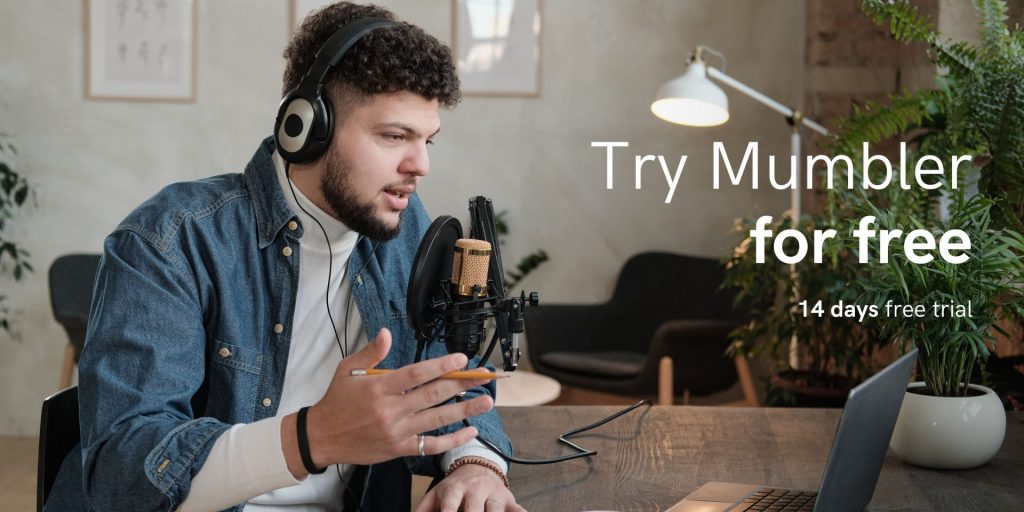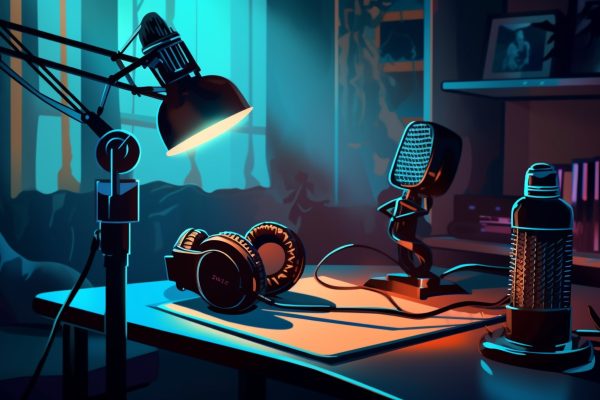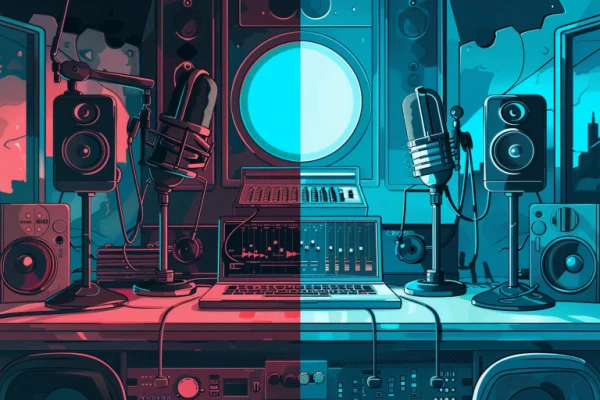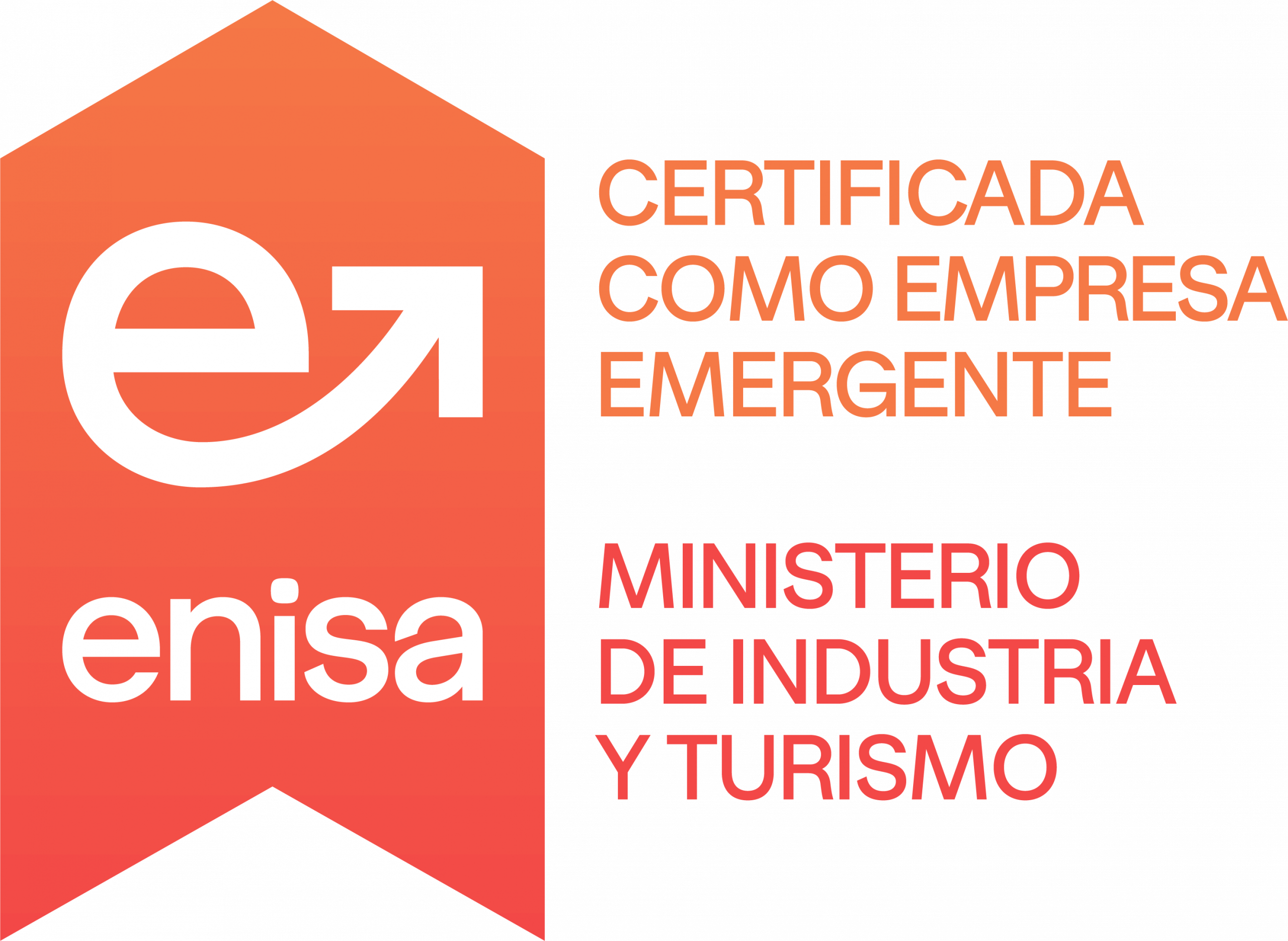Podcasting has become a cultural phenomenon, and you might have wondered whether you could join in on this trend.
The answer is yes, absolutely!
But is starting a podcast difficult? Well, that depends on how you define "difficult" and your personal goals.
Next, we are going to explore the world of podcasting and break down what you need to get started.
We will analyze the simpler aspects such as the challenges you might face along the way, and before delving into the details, we'll take a look at the reasons why podcasting has become so popular.
Podcasting provides a unique platform to tell stories, share knowledge, and connect with a global audience. Whether you want to talk about your passions, share your professional experience, or simply entertain people, podcasting gives you a voice that can reach every corner of the world.
So, why are so many people adopting this form of communication?
Let's find out below.
Why is podcasting popular?
The popularity of podcasting has experienced explosive growth over the last decade, and there are several reasons explaining this phenomenon.
Here are some of the key factors:
- Accessibility and Portability: One fundamental reason for the popularity of podcasting is its accessibility. Podcasts can be listened to on nearly any internet-connected device, from smartphones and tablets to computers and MP3 players. This allows listeners to consume content while on the go, making podcasts ideal companions during daily commutes, workouts, or everyday activities.
- Variety of Content: Podcasts cover a wide range of topics and genres, from news and politics to comedy, science, history, pop culture, and much more. This means there is something for every taste. Listeners can find podcasts that cater to their specific interests, making the medium highly customizable.
- Authentic Connection: Podcasts allow for a more authentic and personal connection between content creators and their audience. Podcast hosts often share their experiences, opinions, and personalities in a more intimate manner than in other media. This creates a sense of closeness and trust with listeners, which can foster loyalty and community engagement.
- Flexible Format: Podcasts are not constrained by time or format restrictions. This allows content creators to delve deep into topics and tell stories in detail. Not being subject to commercial breaks and fixed schedules of radio and television, podcasters have the freedom to develop their content at their own pace and style.
- Free Accessibility: For the most part, podcasts are free for listeners. While there are monetization options such as premium subscriptions or voluntary donations, the vast majority of podcasts can be enjoyed at no cost. This removes a significant barrier to accessing high-quality content.
Consequently, podcasting has gained popularity due to its accessibility, content diversity, authenticity, flexibility, and free accessibility.
These qualities have made podcasts an increasingly preferred form of entertainment and education for people worldwide.
But, what do you need to get started with your own and join this trend?

What is needed to start a podcast?
The Easy Part
- Technology is accessible and affordable: While starting a podcast may be relatively easy from a technical standpoint, carrying it forward and maintaining it requires time and dedication. Planning, recording, editing, and promoting episodes can be time-consuming tasks. You must be prepared to invest consistent time and effort into your podcast project.
- Tools and resources available: The podcasting community offers an abundance of free and low-cost resources to assist you at every step of the process. From online tutorials and quick start guides to forums and social media groups, you'll find a wealth of support and advice from other content creators who have walked the same path. Furthermore, there are podcast hosting platforms that make it easy to distribute and promote your content.
- The podcasting community is welcoming and supportive: Podcasters tend to be highly collaborative and supportive of one another. You can learn a lot from other content creators, establish valuable connections, and in many cases, find collaboration opportunities.The podcasting community is known for its mutual support and willingness to share knowledge and experiences.
The Challenging Part
- The time and dedication required: While starting a podcast may be relatively easy from a technical standpoint, carrying it forward and maintaining it requires time and dedication. Planning, recording, editing, and promoting episodes can be time-consuming tasks. You must be prepared to invest consistent time and effort into your podcast project.
- Competition in the market:: Podcasting is a highly competitive space with millions of podcasts available on a wide range of topics. Standing out from the crowd can be a challengeand will require creating high-quality content and an effective promotion strategy.
- The challenge of finding an audience: Finding and building a loyal audience can take time. Initially, you may have a limited number of listeners, but with perseverance and proper marketing strategies, you can expand your follower base over time.
With this, it is clear that to start a podcast, you need a basic recording setup and access to accessible online resources.
However, long-term success requires dedication, consistency, and the ability to stand out in a competitive market.
How about we look into more details of the commitment demanded to start a podcast?
Is it difficult to start a podcast?
This is a question that many aspiring podcasters ponder before taking the plunge. The answer, ultimately, depends on how you define "difficult" and your personal expectations.
Here are some perspectives to consider:
- It depends on your definition of "difficult": If your idea of "difficult" implies it being an impossible or extremely complicated task, then the answer is no, starting a podcast is not difficult. The technology and necessary tools are within reach for most, and many people have started with minimal resources and found success.
- Willingness to work hard and learn: What is true is that podcasting, like any other creative endeavor, requires hard work and continuous learning. You will learn about audio recording, editing, promotion, and audience growth along the way. If you are willing to invest time and effort in learning and improving your skills, you can overcome any obstacles you encounter.
- Low technical barrierCurrent technology has made the technical barrier to starting a podcast surprisingly low. Most computers come with built-in microphones, and you can find free or affordable audio recording and editing software. Additionally, podcast hosting services make distribution simple and accessible.
- Creativity is key: Beyond technical considerations, the most crucial factor in the success of a podcast is creativity. The ability to develop interesting ideas, tell compelling stories, and connect with your audience is what truly makes the difference. If you have a passion for your topic and an authentic voice, you have what it takes to start a successful podcast.
- Perseverance is key: Like any long-term project, podcasting can have its ups and downs. You may not see explosive audience growth from the start, but if you persevere and continue to improve, you are likely to see results over time. The key is not to get discouraged and maintain a positive and consistent attitude.
Undoubtedly, starting a podcast is not "difficult" in the traditional sense of the word.
However, it does involve work, learning, and dedication.
If you are willing to invest time and effort into your podcast and have a passion for your content, you have every chance of succeeding in the world of podcasting.
Tips for Starting a Podcast
We've already explored why podcasting is popular and what you need to get started. Now, we want to share some tips for launching and managing a successful podcast:
- Define your niche and audience: Before you start recording, it's essential to be clear about what topics your podcast will cover and who your target audience will be. Defining a specific niche will help you stand out in a saturated market and attract listeners interested in your content. Research your potential audience to understand their needs and interests, and tailor your content accordingly.
- Create quality content: The quality of your content is key to attracting and retaining listeners. Research, prepare your episodes, and make sure to offer valuable information, entertainment, or a unique experience to your audience. Maintain an organized script and avoid excessive rambling. Audio editing is also crucial to ensure clean and professional sound.
- Plan your episodes: Before you start recording, plan your episodes in advance. Decide on the structure, format, and duration of each episode. This will help you maintain consistency and avoid moments of uncertainty during recording.
- Invest in quality basic equipment: While you can start with basic equipment like a USB microphone and free editing software, consider investing in higher-quality equipment as your podcast grows. A good microphone and headphones can significantly improve the quality of your audio.
- Establish a consistent publishing schedule: Maintain a regular publishing schedule so your listeners know when to expect new episodes. Consistency is key to maintaining and growing your audience.
- Promote your podcast: Promotion is essential for attracting listeners. Use social media, email marketing, collaborations with other podcasters, and engagement in online communities to promote your podcast. You can also invite friends and followers to share your content.
- Engage with your audience: Encourage interaction with your listeners through social media, email, or comments on your website. Listen to their feedback and questions, and consider dedicating episodes to answering audience questions or discussing topics that interest them.
- Learn and improve: Podcasting is a continuous learning process. Always look for ways to improve your presentation skills, audio editing, and promotion. Listen to other podcasts for inspiration and learn from other content creators.
Starting a podcast is accessible and exciting, but success requires planning, dedication, and a focus on the quality of content. Follow these tips, and you'll be on your way to creating a podcast that not only excites you but also attracts an engaged audience..
Why is it not difficult to start a podcast?
The question "Is it difficult to start a podcast?" doesn't have a definitive answer, as it largely depends on your perspectives and personal expectations.
Podcasting has gained immense popularity thanks to its accessibility, diverse content, and the authentic connection it offers between creators and their audiences.
Starting a podcast is straightforward, but long-term success requires dedication and continuous effort.
It's essential to remember that podcasting is a form of creative expression that allows you to share your voice, knowledge, and stories with the world. If you have a passion for a subject, the willingness to learn and improve, and the perseverance to tackle challenges, then you have everything you need to start an exciting and rewarding podcast.
On your journey to podcasting, remember to define your niche and audience, create quality content, plan your episodes, and establish a consistent publishing schedule. Additionally, do not underestimate the value of promotion and interaction with your audience.
Ultimately, podcasting is an adventure where you can share your unique voice with the world and connect with an audience that shares your interests.
Take advantage of the tools and resources available on Mumbler, be creative, and enjoy the process.
The world of podcasting is waiting for your contribution!
About the author
Content Manager at Mumbler.
Podcaster and content creator.
Passionate about communication and a fan of the WordPress community.
I talk about movies and series on Babel Infinito.
I talk about podcasting on Todo por Un Podcast.








